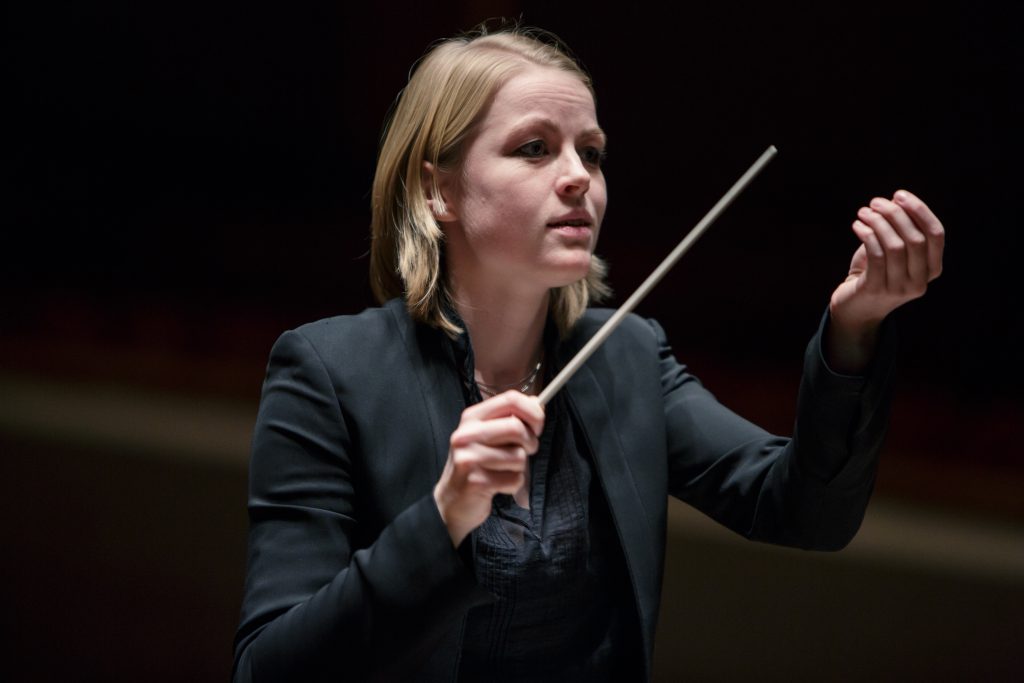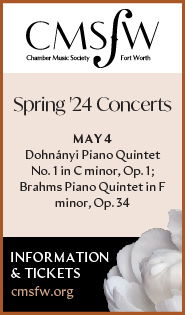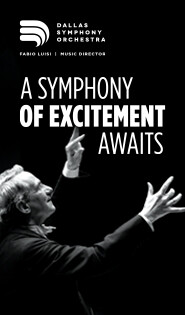DSO’s Reinhardt covers for van Zweden with a mixed Mozart and a stellar Duruflé

Dallas Symphony Assistant Conductor Ruth Reinhardt stepped in for Jaap van Zweden Thursday at Meyerson Center. Photo: Tracy Martin
The Dallas Symphony Orchestra traveled from dark to light on a couple of levels Thursday evening at Meyerson Symphony Center, where Ruth Reinhardt, the orchestra’s assistant conductor, stepped in on short notice for ailing music director Jaap van Zweden. It was a substitution that paid dividends as the concert progressed.
The evening began with Mozart’s darkest piano concerto, the No. 20 in D minor — featuring Louis Lortie as soloist — and ended with French composer Maurice Duruflé’s radiant Requiem (1948) for chorus and orchestra. The arrangements followed suit, with ensemble strings suitably pared back for late 18th Century music, and Reinhardt applying an appropriately light touch at the outset of Mozart’s concerto. An air of distant storminess colored the orchestration in the first movement before Reinhardt took a more emphatic stance.
Lortie was attuned to these shifts from his first note onward, and he successfully carried the serious temper of the first movement’s establishing gestures into its lighter, brighter second theme. There was a solid muscularity to Lortie’s rendering of the lean passage-work and a busy romanticism to his handling of the cadenza.
The second “Romanza” movement proved less convincing, however — typified by Lortie’s use of a pronounced and somewhat uncomfortable staccato in the first phrase; here and elsewhere in the second movement, Lortie and Reinhardt never quite located the needed combination of fluidity and intensity.
Likewise in the third, which arrives in a fury and then proceeds into one of Mozart’s sunniest themes, conductor and soloist did not achieve a persuasive consensus on where the music was going. Lortie seemed more at home in the flashy romanticism of his encore, Chopin’s “Aeolian Harp” etude.
Reinhardt returned after intermission with the orchestra at full force, and buttressed by the 200-member Dallas Symphony Chorus, for an emotional and resounding performance of the Duruflé. His Requiem miraculously joins austere Gregorian chant with a rich, late-romantic harmonic vocabulary, lush choral-orchestral textures, and complex counterpoint in the manner of Bach — all for a work whose themes of comfort and acceptance derive from the pleadings of the ancient text on which Requiem is based.
The precision and breadth of tone of this chorus created a warm, enveloping cloud of sound, and German-born conductor Reinhardt proved a superb interpreter of the Gallic ecstasy contained in this work.
Mezzo-soprano soloist Sasha Cooke sang with a beautifully rich, quasi-contralto tone and a wonderfully controlled dynamic range in the “Pie Jesu” movement. The “Sanctus,” one of the most striking moments in the entire choral-orchestral repertoire, emerged in full, thrilling glory. The alternating moments of rapture and reflection fade away in the succinct final blessing, “In Paradisum,” in which the soul of the departed is welcomed into the arms of the angels. Duruflé, in the finale, recedes into a calm serenity — perfectly captured Thursday by Reinhardt and the massive forces on stage collaborating in a moment of exquisite intimacy.
The program will be repeated at 7:30 p.m. Friday and Saturday at Meyerson Symphony Center. mydso.com; 214-692-0203.


